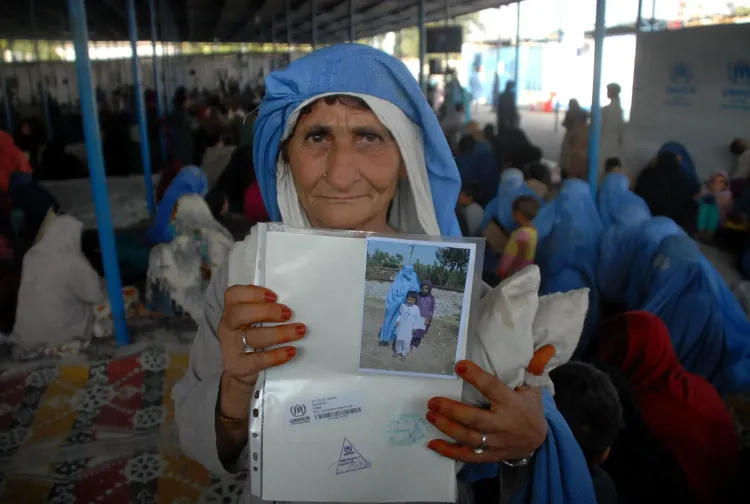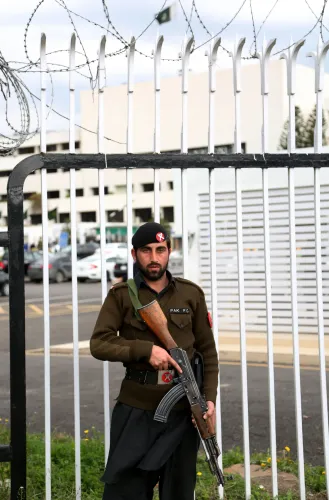Afghanistan Appeals to Pakistan to Cease Refugee Expulsions as Deadline Nears

Synopsis
Key Takeaways
- Afghanistan urges Pakistan to stop refugee expulsions.
- Afghan officials call for a coordinated return strategy.
- Refugees with ACC face threats of deportation.
- Khyber-Pakhtunkhwa hosts the largest Afghan refugee population.
- Concerns raised over harassment and mistreatment of Afghan refugees.
Kabul, March 18 (NationPress) Afghanistan has made a formal appeal to Pakistan, urging the nation to end the expulsion of Afghan refugees as Islamabad prepares to remove even those possessing Afghan Citizen Cards (ACC) following the impending deadline of March 31.
During a session of the High Commission for Refugee Affairs, led by Afghan Deputy Prime Minister for Administrative Affairs Abdul Salam Hanafi, officials highlighted the necessity for a collaborative and reciprocal approach for the safe return of Afghan refugees, as reported by Afghan media outlet TOLOnews on Tuesday.
"We urge our neighboring countries, particularly Pakistan, to rethink this decision. A unilateral action is not beneficial for either party," stated Abdulmutalib Haqqani, the spokesperson for the Afghan Ministry of Refugees and Repatriation.
Numerous Afghan refugees with ACC in Pakistan have voiced their concerns regarding escalating challenges within the country. They mentioned that despite holding these cards, they are facing coercive deportation. "Refugees holding ACC cards are not illegal. They are Afghan refugees who have lived here for the last 25 years," quoted Malik Awal Shinwari, an Afghan refugee in Pakistan, according to TOLOnews.
The Pakistani government has reiterated that all Afghan refugees, including those with legitimate documentation, are required to exit Pakistan by March 31, which has been designated as the voluntary departure deadline. Any illegal foreign nationals found in the region will be detained and deported back to their respective countries.
Previously, the ruling party in Pakistan's province of Khyber-Pakhtunkhwa (KP) criticized the central government's policy to repatriate Afghan refugees as "inhumane." Chief Minister Ali Amin Gandapur of KP condemned the federal policy towards Afghan refugees as "inhumane and oppressive," asserting that his administration would determine whether to comply with the Centre's directives post-March 31.
KP is home to the largest population of Afghan refugees in Pakistan, with Peshawar hosting the highest concentration. According to the United Nations, over 800,000 Afghans have returned to Afghanistan since Pakistan initiated its repatriation strategy.
Many refugees have resided in the province for years, establishing businesses or engaging in various employment sectors. Afghan refugees in KP have also appealed to Pakistani authorities not to compel them to leave the country by March 31.
Multiple media reports have indicated that Afghan refugees are enduring persistent harassment and mistreatment in Pakistan. They have called upon the Afghan Government and Human Rights organizations to advocate on their behalf.
Numerous refugees reported that despite possessing valid legal documents, they are faced with threats of unlawful detention, deportation, and discrimination. "Pakistani police have been executing severe raids, even during the night, invading homes and arresting Afghan refugees," remarked an Afghan journalist.









